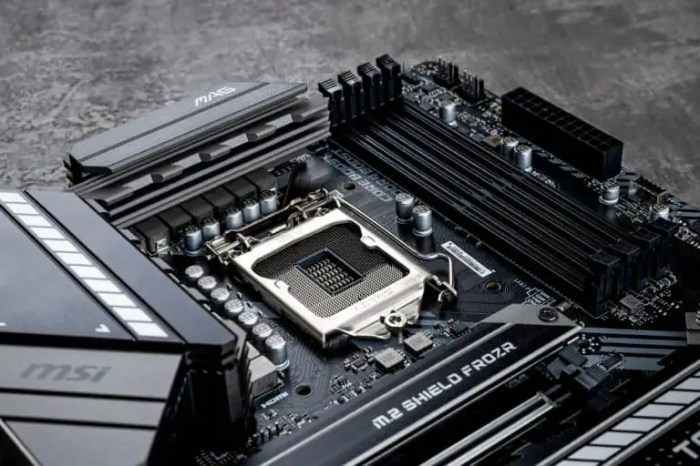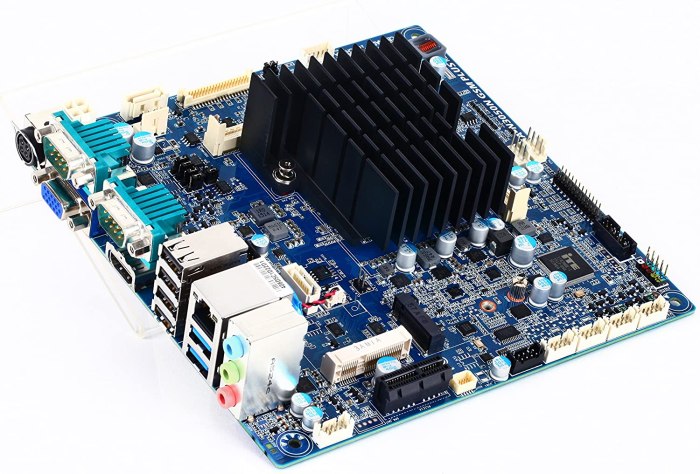Which statement is true of laptop motherboards – When it comes to the heart of a laptop, the motherboard reigns supreme. This intricate component serves as the foundation for all the essential functions that make your laptop tick. Embark on a journey to unravel the truths about laptop motherboards, exploring their vital components and functionalities.
From chipsets and memory to storage and connectivity, we delve into the intricate workings of these miniature marvels, empowering you with a comprehensive understanding of their role in powering your portable computing experience.
Chipset

The chipset is a critical component on a laptop motherboard, responsible for connecting and coordinating the communication between various components such as the CPU, memory, storage, and expansion devices. It acts as the central hub, facilitating data flow and ensuring efficient operation of the system.
Types of Chipsets
- Intel Chipsets:Intel chipsets are commonly found in laptops, offering a range of features and performance levels to suit different needs.
- AMD Chipsets:AMD chipsets provide competitive performance and often come with integrated graphics, making them suitable for laptops focused on gaming or content creation.
Examples of Chipsets
- Intel Core i5-1235U with Intel UHD Graphics
- AMD Ryzen 5 5500U with AMD Radeon Graphics
Memory: Which Statement Is True Of Laptop Motherboards
Memory, also known as RAM (Random Access Memory), is crucial for storing and retrieving data and instructions that the CPU needs to process. Laptop motherboards support various types of memory, each with its own characteristics and performance capabilities.
Types of Memory
- DDR4:DDR4 is a widely used type of memory that offers high speeds and capacities.
- DDR5:DDR5 is the latest generation of memory, providing even faster speeds and improved efficiency.
Importance of Memory Speed and Capacity
- Memory Speed:Higher memory speed enables faster data transfer between the memory and the CPU, improving overall system performance.
- Memory Capacity:Sufficient memory capacity ensures that the laptop can handle multiple applications and tasks simultaneously without experiencing slowdowns.
Factors to Consider When Choosing Memory
- Compatibility:Ensure that the memory is compatible with the laptop’s motherboard and chipset.
- Speed:Choose memory with a speed that matches or exceeds the recommended speed for the laptop.
- Capacity:Determine the amount of memory required based on the laptop’s intended usage and multitasking needs.
Storage

Storage devices on laptop motherboards provide non-volatile storage for data, including the operating system, applications, and user files. Different types of storage devices offer varying performance and capacity options.
Types of Storage Devices
- Hard Disk Drive (HDD):HDDs are traditional storage devices that use spinning disks to store data. They offer large capacities at a lower cost.
- Solid State Drive (SSD):SSDs use flash memory to store data, providing significantly faster read and write speeds than HDDs.
Advantages and Disadvantages of Storage Types
| Storage Type | Advantages | Disadvantages |
|---|---|---|
| HDD | Large capacityLower cost | Slow speedMechanical parts prone to failure |
| SSD | Fast speedNo mechanical partsDurable | Lower capacityHigher cost |
Choosing the Right Storage Device
- Capacity:Determine the amount of storage space required based on the laptop’s intended usage and data storage needs.
- Speed:Consider the performance requirements of the applications and tasks that will be used on the laptop.
- Reliability:SSDs offer higher reliability due to the absence of mechanical parts.
Expansion Slots

Expansion slots on a laptop motherboard allow for the connection of additional hardware components to enhance the functionality of the system.
Purpose of Expansion Slots, Which statement is true of laptop motherboards
- Increased Functionality:Expansion slots enable the addition of components such as graphics cards, sound cards, or Wi-Fi cards.
- Upgradability:Expansion slots allow for easy upgrades of components as technology advances.
Types of Expansion Slots
- PCI Express (PCIe):PCIe is a high-speed expansion slot used for connecting graphics cards, storage devices, and other high-performance components.
- Mini PCIe:Mini PCIe is a smaller version of PCIe, commonly used for connecting Wi-Fi cards or other small form factor devices.
Devices that Can Be Connected
- Graphics cards
- Sound cards
- Wi-Fi cards
- Storage devices (e.g., SSDs, HDDs)
FAQ Corner
What is the role of the chipset on a laptop motherboard?
The chipset acts as the central communication hub, connecting various components on the motherboard and facilitating data flow.
What factors should be considered when choosing memory for a laptop?
Memory speed and capacity play crucial roles in determining laptop performance, with higher values leading to faster and more efficient multitasking.
What are the advantages of solid-state drives (SSDs) over traditional hard disk drives (HDDs)?
SSDs offer significantly faster data access speeds, improved durability, and reduced power consumption compared to HDDs.